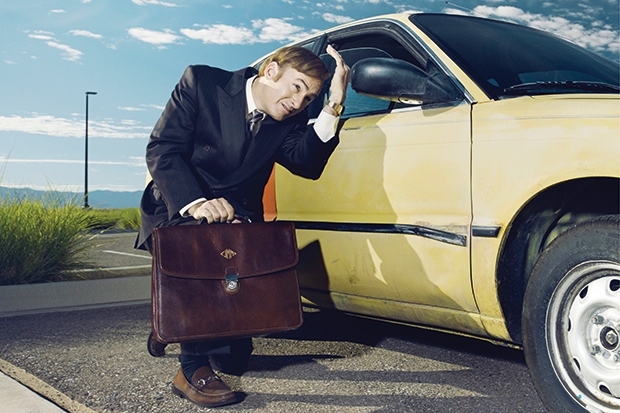I lost count long ago of the number of dinner parties and pub conversations where I’ve had to utter the humiliating words, ‘Actually I haven’t seen Breaking Bad.’ The social isolation became even more shaming when my 81-year-old mother rang to ask me if I’d heard of the show and to explain how much she loved it. (‘But isn’t it very violent, Mum?’ I said. ‘Yes,’ she replied.) All of which means that I can approach Better Call Saul (Netflix) with what I like to think of as stern critical neutrality — rather than, say, ignorance.
The main character is, or will become, Breaking Bad’s Saul Goodman, who, from a mixture of cultural osmosis and Google, I know to have been a crooked lawyer, last seen heading to a new life in Nebraska. He clearly got there too, because the opening black-and-white sequence showed him looking depressed in Omaha: by day, mournfully working in a cake shop; by night, mournfully drinking scotch and Drambuie as he watched videotapes of his old adverts.
But this was deceptive, since — as you probably know by now — the series as a whole is a prequel to what fans apparently like to call BB. And so, with a Wizard of Oz-style burst into colour, we joined the man in his days as a spectacularly down-at-heel attorney, still going by his real name of Jimmy McGill, six years before he turned into the Saul that everybody seems to know and love.

In fact, the programme’s obvious confidence in the existence and enthusiasm of its viewers shone through the two episodes available so far (a new one will be added every Tuesday). Both resembled a TV version of the early chapters in the sort of novels written by authors who know they already have a loyal readership — and can therefore go about their business without any desperate need to ingratiate.








Comments
Join the debate for just £1 a month
Be part of the conversation with other Spectator readers by getting your first three months for £3.
UNLOCK ACCESS Just £1 a monthAlready a subscriber? Log in